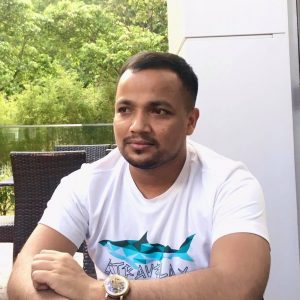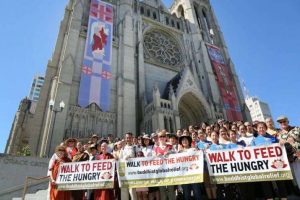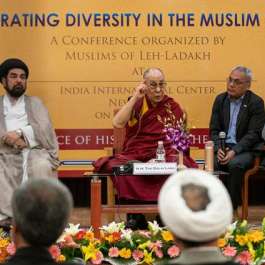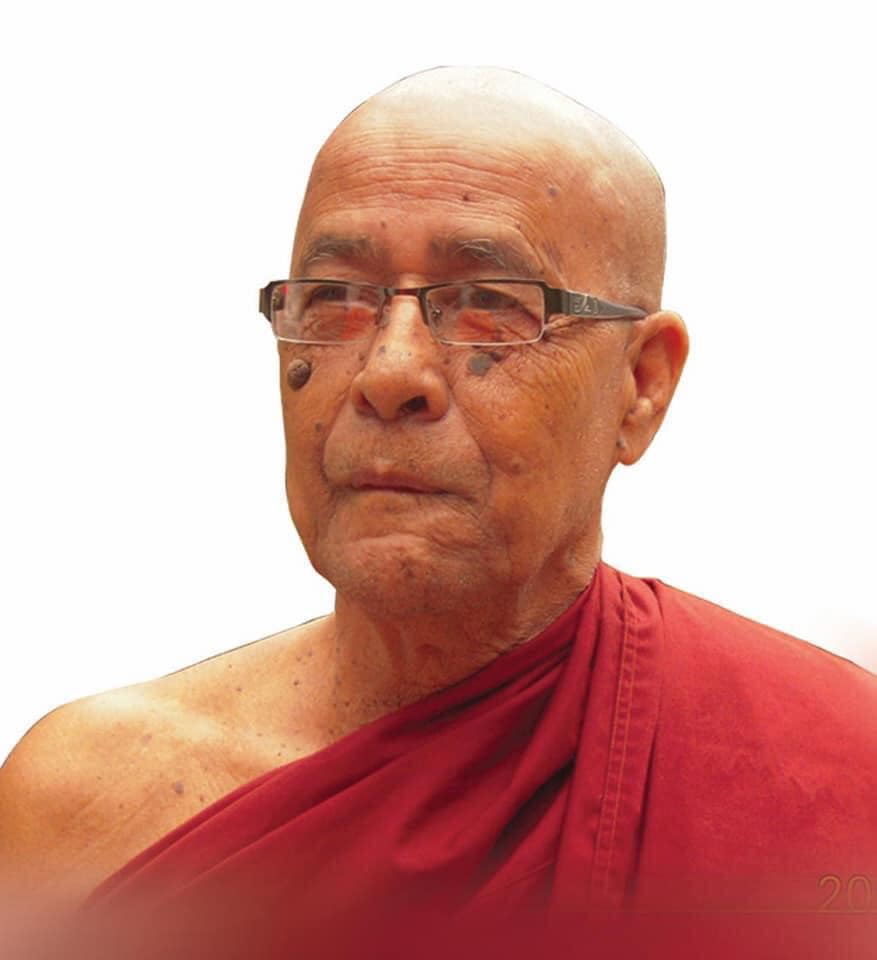
1920–20. From facebook.com
A cremation and funeral ceremony for the late 12th supreme patriarch of Bangladesh’s Buddhist sangha, His Holiness Sangharaj Venerable Dharmasen Mahathera, will be held on 25–26 February in the village of Unainpura in Chittagong District, with thousands of monks and lay people, including ministers, members of parliament, diplomats, and journalists expected to attend. Ven. Dharmasen passed away on 20 March last year at the Royal Hospital in Chittagong. He was 92 years old.
According to the Cremation Celebration Committee, due to precautions surrounding the COVID-19 pandemic, the body of the supreme patriarch was preserved in a casket to await a final honoring ceremony to be attended by local and international devotees.
“After His Holiness Bangladesh Sangharaja Dr. Dharmasen Mahathero’s (17 June 1928–20 March 2020) demise, followers and devotees preserved his dead body at Unainpura Lankarama Buddhist Monastery with the full faith and respect,” the Cremation Celebration Committee said in a written statement. “Because of the current pandemic and with humble respect, the preserved body of His Holiness Bangladesh Sangharaj Dr. Dharmasen Mahathero was placed into a glass-made casket on 31 July 2020.”
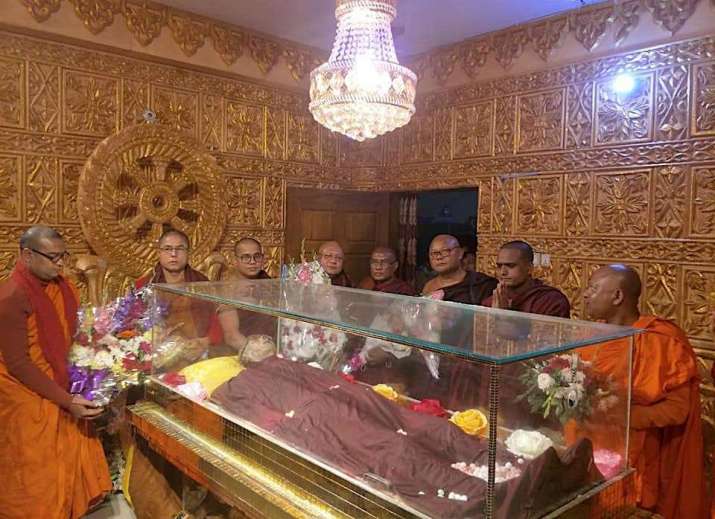
Ven. Dharmasen is a unique name in the history of Buddhism in Bangladesh. He was born in Unainpura, a village recognized as the home of several venerated Buddhist practitioners and devotees, including His Holiness Ven. Purnachar Mahathera (1838–1905), the second Buddhist supreme patriarch of Bangladesh; Ven. Kripasaran Mahathera (1865–1926), a great monk who came to Calcutta and established the Bengal Buddhist Association in 1892 and who was also a key figure in the movement to revive Buddhism on the Indian subcontinent; and Shilananda Brahmacari, a prominent writer on Buddhism.
Ven. Dharmasen became a novice monk in 1942 and was ordained as a bhikkhu in 1947. On 29 January 2004, at the 57th general meeting of the Supreme Sangha Council of Bangladesh (Bangladesh Sangharaj Bhikkhu Mahasabha), he became the 12th supreme patriarch. There are two supreme councils for the Buddhist sangha in Bangladesh: the Bangladesh Sangharaj Bhikkhu Mahasabha and the Bangladesh Bouddha Bhikkhu Mahasabha. In addition to these two organizations, there are other Buddhist sangha councils among ethnic Chakma and Marma monastic communities.
Ven. Dharmasen received many national and international awards, including the Atish Dipankar and Vishuddhananda Award from the Bangladesh Bauddha Kristi Prachar Sangha, the title of Tripitaka Sahitya Chakraborty from Sri Lanka and Aggamahasaddhammajyotikadhvaja from Myanmar, the World Peace Medal from Thailand, the title of Supreme Buddhist Leader from Japan, and an honorary doctorate from the Vietnam Buddhist University.
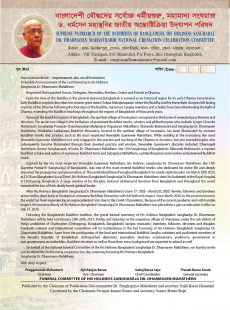
Buddhist funerals in Bangladesh traditionally involve many members of the community. For lay people, days or even weeks are spent providing food for family members of the deceased. For seven evenings after the deceased’s passing, the local monk visits the home of the bereaved to chant and give teachings on death. On the seventh day, family members organize sanghadana (offerings to the sangha).
The dynamic of Buddhist funerals in modern-day Bangladesh is changing, however. Once, funerals were conducted by the local monk and marked by chanting and reflections on the life of the deceased. But depending on economic ability, the deceased’s relatives might nowadays invite the larger community of monks and relatives to participate.
Senior monks are accorded large funerals. Their bodies are preserved for longer—from six months or even as long as two years—and their followers arrange funerals that last 2–3 days, or more. These ceremonies are unique as hundreds of monks and thousands of devotees are invited, with offerings of food and gifts. Funerals for monks are traditionally followed by entertainment, such as religious songs and performances.


